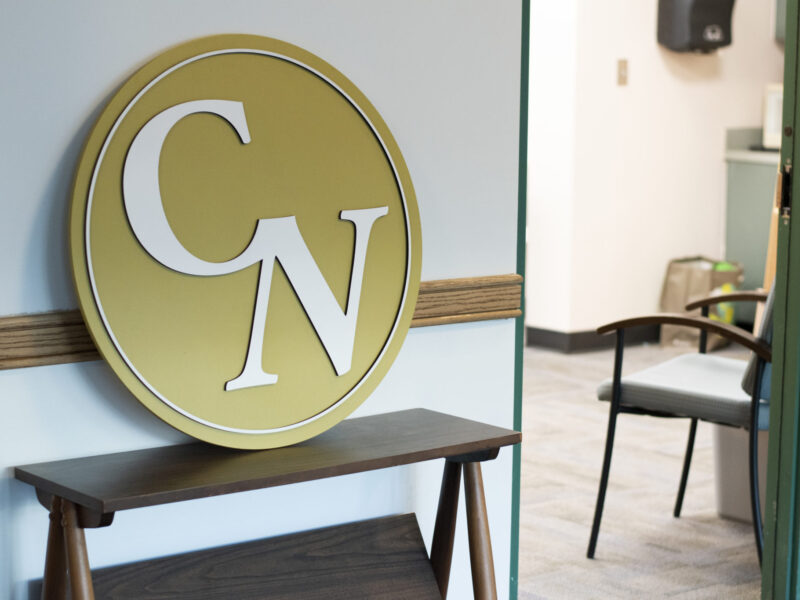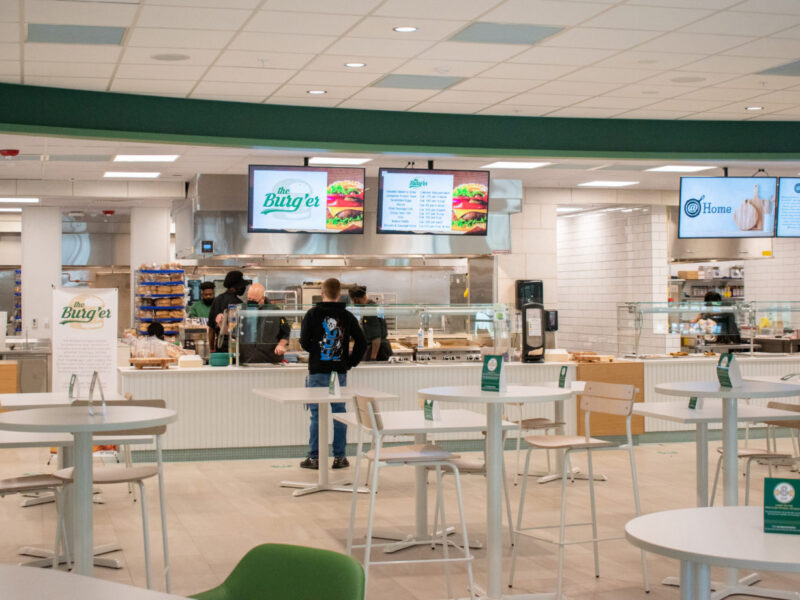Pictured above: USF system President Steven Currall shows a face mask developed by a USF researcher during an April 9 virtual town hall. These face masks are being used by healthcare professionals at USF Health and local Tampa hospitals amid the coronavirus pandemic. Courtesy of USF
By Katlynn Mullins
USF system President Steven Currall opened his virtual town hall April 9 with a quote inspired by Nobel Prize-winning author William Faulkner.
“Our great university will not simply endure the current challenge — we will prevail over this challenge.”
Altogether, eight university leaders from USF Tampa, St. Petersburg and Sarasota-Manatee sat in front of their webcams to address approximately 3,500 participants from all three campuses.
The 90-minute meeting was filled with words like “innovation,” “relief” and, most obviously, “coronavirus.”
Currall spoke first, explaining what USF has accomplished during the pandemic.
The USF United Support Fund — which has raised more than $240,000 — received a $50,000 contribution from Jeff and Penny Vinik through the Vinik Family Foundation.
Additionally, USF researchers have developed and are producing 3D printed nose swabs and facial shields for USF Health and nearby Tampa hospitals.
A large concern for faculty and staff was when they’d physically be able to return to work.
Charly Lockwood, senior vice president of USF Health and dean of USF Tampa’s Morsani College of Medicine, talked about the university’s “strategy to get back to normal.”
It starts, Lockwood said, with the availability of antibody testing.
While current coronavirus tests indicate whether the virus is active in a person’s system, they do not say whether a person has already had it.
“In this country, we’ve only been testing the sickest patients, the most vulnerable patients and hospitalized patients,” Lockwood said. “So we have significantly underestimated the number of cases.”
Lockwood said there’s likely a “big population” of younger patients who have been infected with little to no symptoms.
The university has ordered a set of testing kits from McKesson, an American medical supply company that has been working with LabCorp to develop a test.
Lockwood did not clarify which tests were ordered — or how they’d be administered.
McKesson’s website provides information on “Host antibody (serology) tests,” or blood tests. No other tests are listed.
He hopes that, in about two weeks, the university will have validated the test so it can be confident that people will no longer be at risk.
If everything goes smoothly, Lockwood said he is “hoping to get immune people back to work within the next few weeks.”
Those who haven’t had the virus but pose a low risk may return within eight weeks. Lockwood added that the most vulnerable group of people might be able to return in eight to 10 weeks.
Until then, he advised people to “wipe down cartons” from the grocery store and to use face coverings.
“That is actually more to protect other people…” Lockwood said. “Because you may be infected and not know it. At least half of folks are asymptomatic.”
Provost Ralph Wilcox spoke next.
He touted the university’s optional pass/fail grading system and announced a soon-to-launch remote tutoring service.
The university has extended the application fee deadline for incoming freshmen and will waive fees for those facing financial hardship — something that’s always been available to students in need.
Wilcox also promoted a new student toolkit to guide prospective students through onboarding, including online orientations.
Regional Chancellor Martin Tadlock was next.
“Even though this is virtual,” Tadlock said. “I feel like I’m among family and friends.”
He went on to talk about St. Petersburg’s pen pal program, and how the Support-A-Bull food pantry has received more than 380 pounds of food since spring break.
Tadlock also announced a new venture.
USF St. Petersburg is working with the St. Pete Innovation District on a program to allow students to be matched up with quarantined senior citizens in assisted living facilities.
The program would set a time for daily video chats or phone calls.
While prorated refunds have been issued for student housing and meal plans, two attendees asked about parking permits during the meeting.
Neither question was addressed.
“USF will not be issuing refunds for parking permits,” said Aaron Nichols, assistant director of communications for Tampa, in an email after the town hall.
Nichols explained that the parking and transportation departments function as an “auxiliary unit” at USF, meaning they do not get state funding. Parking permit fees fund basic operations and pay for the lots and garages on campus.
“Even though only personnel performing critical infrastructure work are working on campus right now, there are still costs associated with our parking lots and garages, such as maintenance, operations and debt payments,” Nichols said. “With this in mind, there was a need for our refund policy to be amended.”
A staff member asked about the “extent of layoffs and furloughs arising from the economic impact of the crisis.”
They asked how decisions about faculty being let go would be made, and in what order.
The university’s director of media relations, Adam Freeman, directed the question to David Lechner, the university’s senior vice president for business and financial strategy.
“Dear lord,” Lechner said after hearing the question. “Adam, what did I ever do to you?”
His answer, in short, was “it depends.”
“We are going to try to meet our core mission of educating students,” Lechner said. “And providing a safe and secure campus.”
“I have to say at this point in time, our focus is on meeting the needs of students,” Wilcox added.
Currall stepped in.
“We are committed to going forward with our academic mission in a responsible way,” Currall added. “We want to convey confidence to our community that we’re being very thoughtful about these questions.”
This story was updated on April 10, 2020 to reflect the number of people that attended the meeting.



